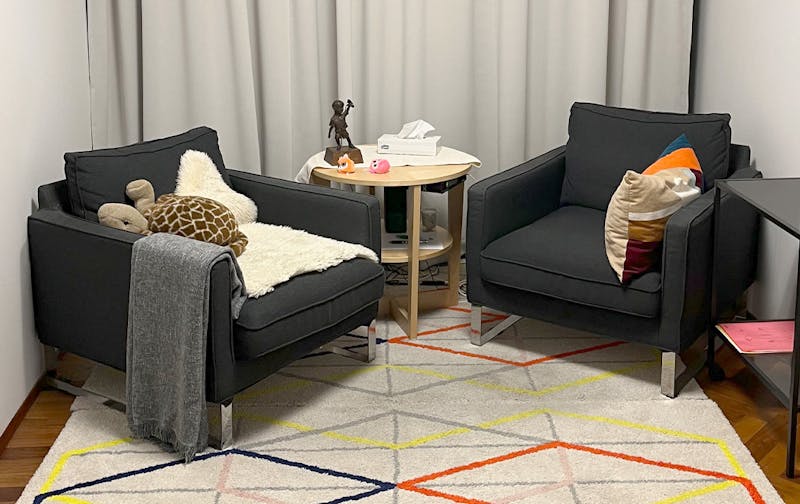The interview
Going to the Children’s House is nothing like going to a police station. The Children’s House just looks like a regular house.
What questions do they ask?
The questions in the interview are not complicated. The person asking you questions makes sure that the questions don’t make you think about something that didn’t happen. You can trust the person because they only ask questions that are proven to be the best questions for interviews like this.
All children are interviewed in a similar way, but always according to their age. For example, sometimes drawings are used for younger children. If you have any kind of diagnosis or medical condition, child protection services lets the Children’s House know. That is so you can feel better in the interview.
The person who asks questions
In the interview, it’s just you and the person from the Children’s House who is asking you questions. The person has gotten special training in doing these interviews. They are not allowed to do anything else in the interview than what they are supposed to do. There are very strict rules about that. The people who talk to you just want to find out what happened.
The interview is recorded
You don’t have to go to the courtroom and bear witness there. That is because the interview with you is recorded and played in the courtroom.
Your parents
Your parents or guardians are in another room while you are in the interview. They don't watch or listen.
